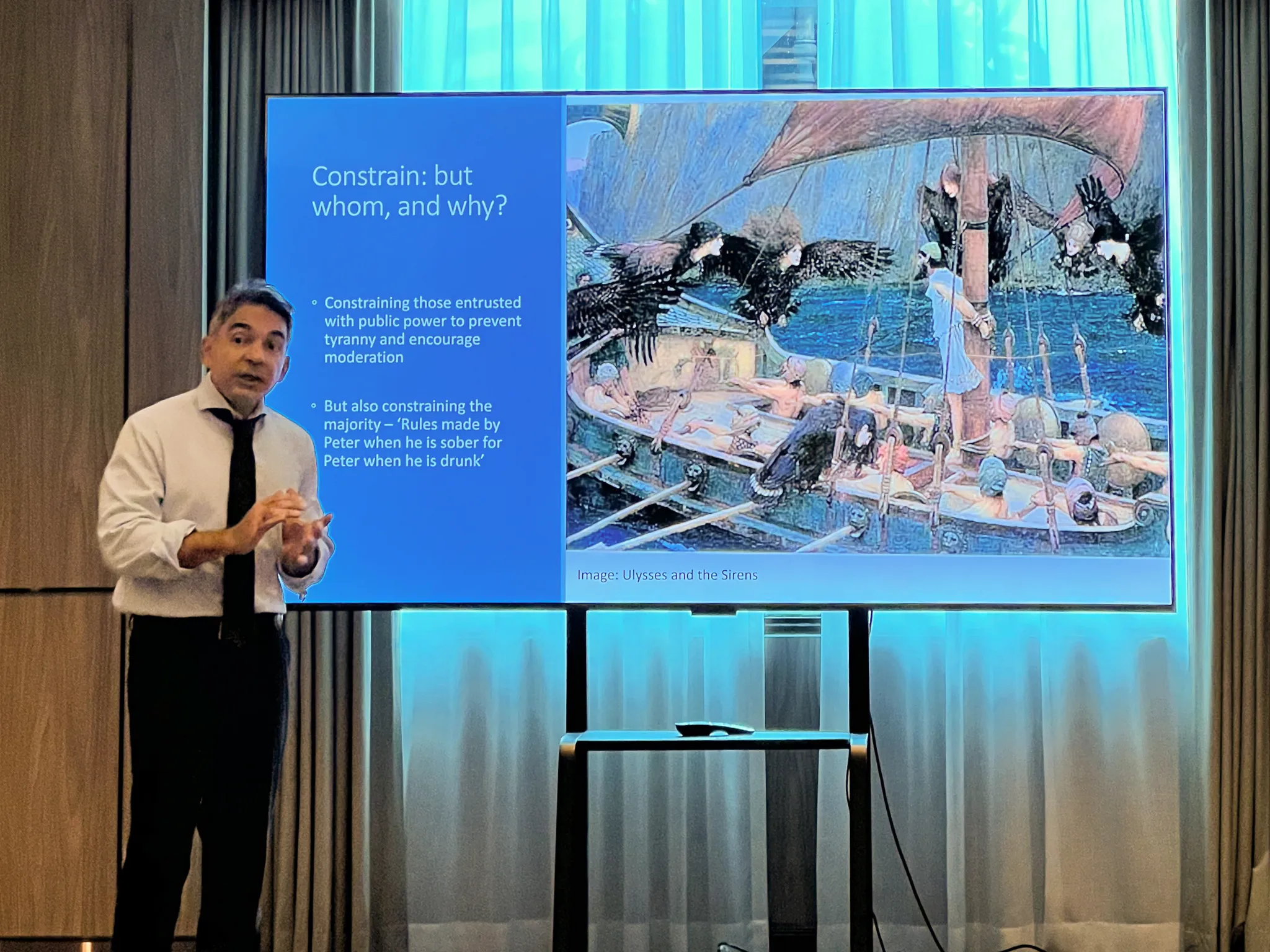Reimagining Democracy: Lessons and strategies from Asia and Africa’s battle against backsliding

Democratic backsliding – the phenomenon of legitimately elected leaders and governments manipulating the electoral playing field or chipping away at independent institutions – has emerged as one of the foremost threats to democracy globally, and particularly in Asia and the Pacific.
In Asia specifically, countries with diverse and colourful political histories are facing increased pressure that risks eroding hard-won democratic progress. Governments, civil society actors, and scholars are seeking ways to counteract this threat. On the sidelines of the International Civil Society Week (ICSW) in Bangkok, Thailand, International IDEA hosted representatives from across the region, and Africa, to discuss the tactics wielded by would-be backsliders, and strategies for resistance and resilience. The day-long discussion, “Reimagining Democracy in Asia” offered critical opportunities for cross-regional collaboration, learning, and innovation.
Recent reports on the causes and potential remedies for backsliding, including the 2024 International IDEA Global State of Democracy, the International IDEA 2023 report ‘Designing Resistance: Lessons Learned for Institutional Design from Backsliding’, and the International IDEA 2025 report ‘Designing Resilient Institutions: Countering Democratic Backsliding in Asia’, have highlighted that the quality of democracy is declining in more countries than it is improving. According to the 2024 Global State of Democracy report, nearly 47 per cent of countries experienced some level of democratic decline, with the most significant drops observed in Africa and Asia and the Pacific.
Starting off the day’s discussion, International IDEA’s regional director, Leena Rikkila Tamang, said that while strategies employed by actors of backsliding are very context specific some patterns are emerging from context to context. "Backsliders are learning from each others and so should we who are defending democracy" she said. Senior Programme Manager Adhy Aman built off this, identifying the heightened political rhetoric and growing pressures on democracies to deliver for the people, who are looking for their governments to act to shore up democratic resilience. Windows of opportunity, when they do open, can be brief, so it is imperative defenders of democracy are prepared in advance with ideas of ways forward.
Sumit Bisarya, head of International IDEA’s Constitution-Building Programme, spoke about the critical role that truly independent institutions play in guarding against the worst impulses of democratically-elected leaders who may wish to, “get into power and lock the door behind them.” He highlighted two other sources of democratic resilience: the people and the opposition but stressed the need for both to be active and participatory.
One participant from an African nation reported the misuse of democratic elections by incumbents to entrench themselves in power, but also highlighted a contrast between what some nations may see as inappropriate term lengths, which are accepted and condoned by populations of another. This drew in Sumit Bisarya’s reflection that all countries should have democracies and constitutions that are relevant to the local context and culture.
“The models of democracy developed long ago, in the post-colonial time in countries emerging into independence but far away from the localised context. The original model of what we considered to be good constitutional democracy is no longer working,” and called on democracies and constitutional experts to ground lawmaking in nuanced and relevant approaches that aren’t afraid to innovate, noting that when it comes to countering backsliding, “prevention is better than cure”.




